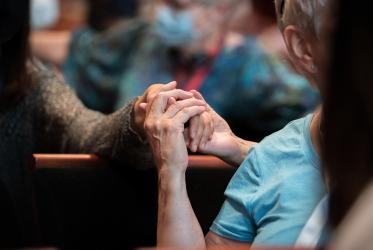Displaying 1 - 20 of 53
17 April 2024
WCC, WHO commemorate 50 years of collaboration
04 April 2024
WCC webinar explores decolonizing beauty
11 December 2023
Pandemic and pedagogy: what are the valuable lessons?
21 December 2022
Gracia Ross: “Responding to HIV is a moral obligation”
27 September 2022

















